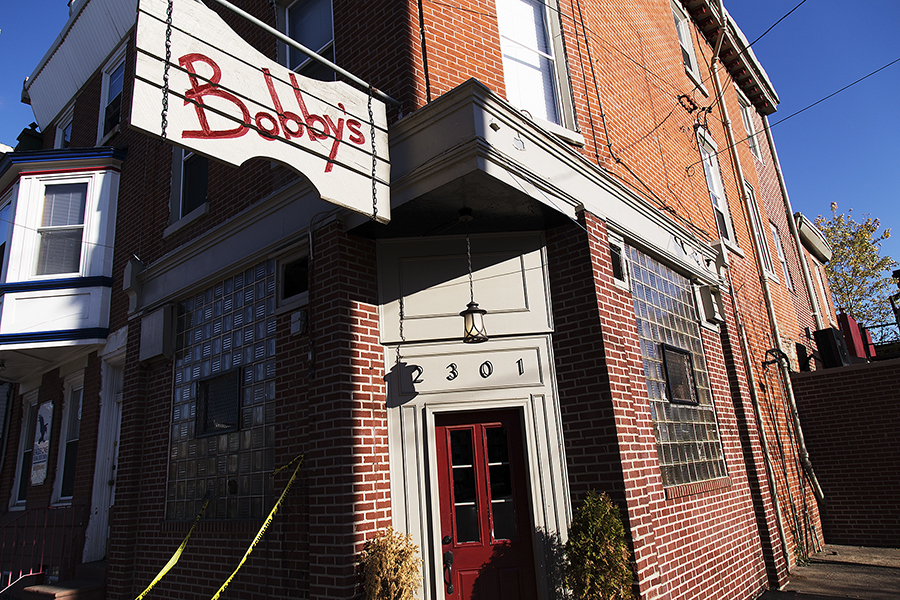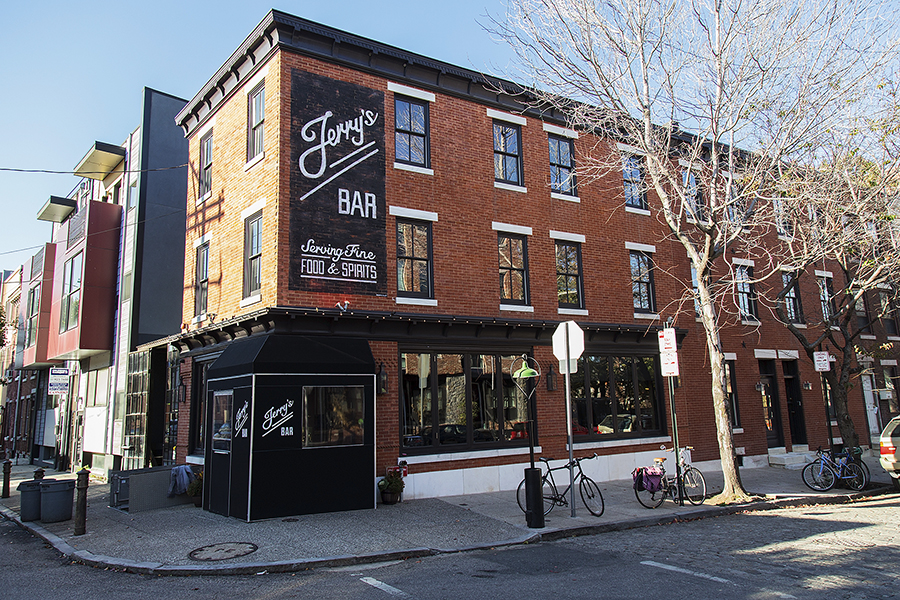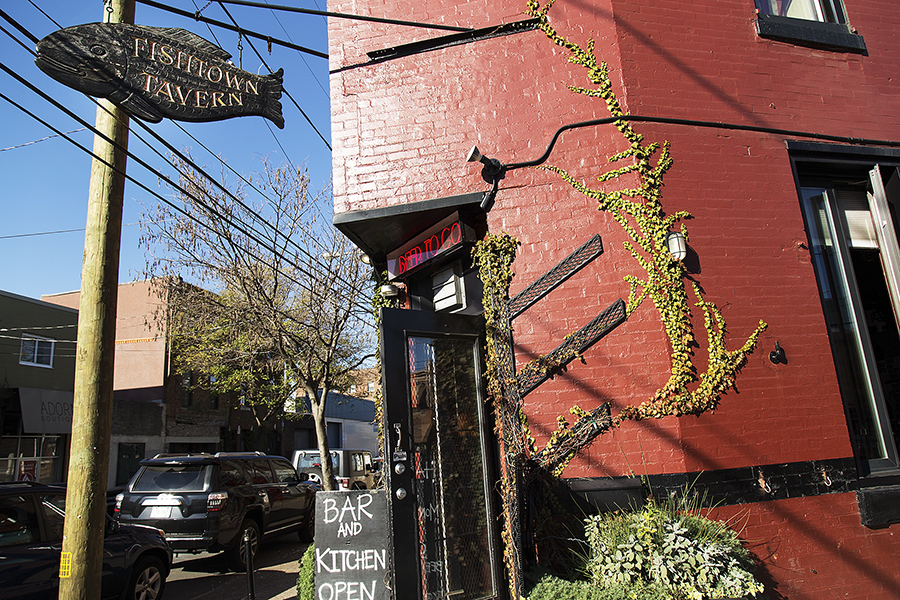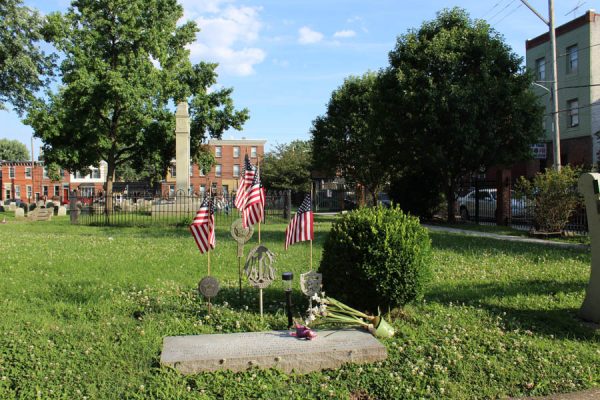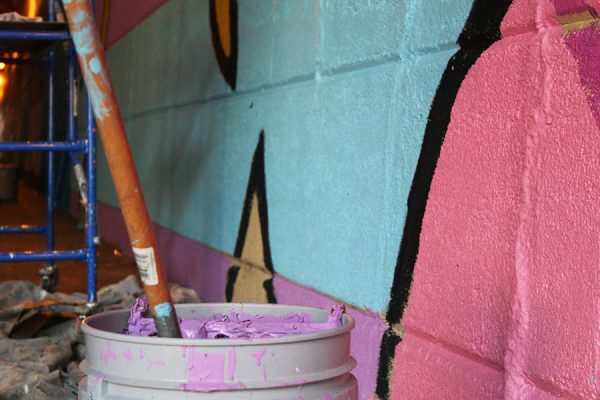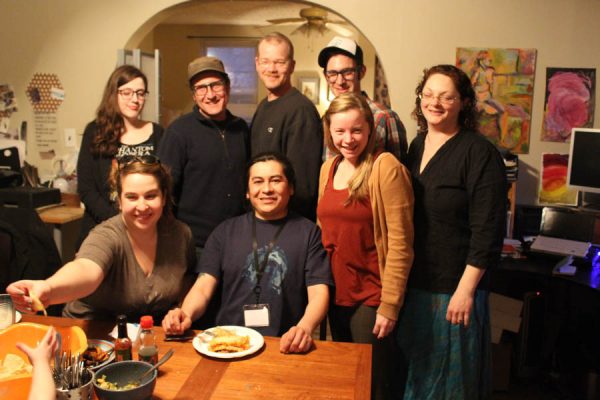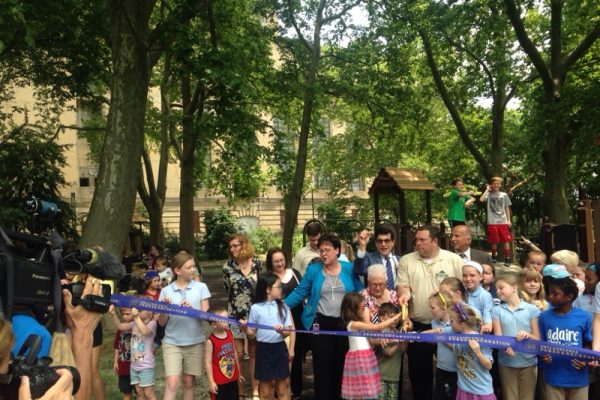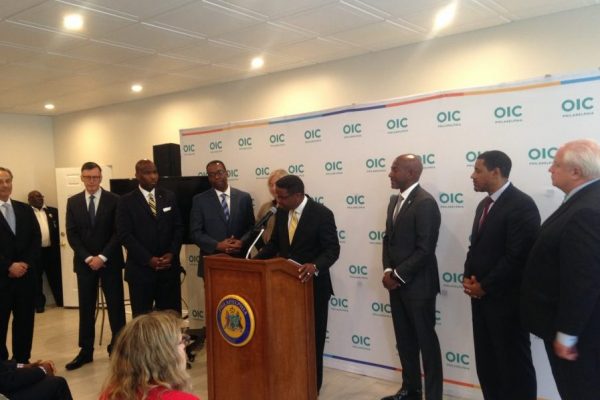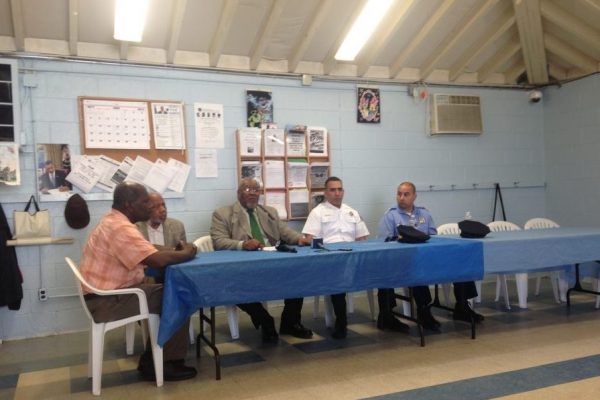Dive Bar Down: How Fishtown Bars Reflect Greater Sociological Business Shift
When 44-year-old Bobby Harris was murdered during a 4AM robbery at the corner of Palmer and Mascher Streets in 2006, he left behind a staple Fishtown corner bar and a family not necessarily ready for the challenge of running it.
Harris was the co-owner of Bob’s Happy Hour Tavern at 2301 Frankford Ave., named after his late father, and the responsibility of the bar now fell on the rest of his family. Namely, his mother, son and sister.
The bar catered to an older Fishtown crowd at the time, housed in a spot too far north for the Johnny Brenda’s and El Bar crowds to stroll on by and a few blocks too far south for the expanding younger crowd who’d been creeping into Lost Bar on weekends.
But the crowd wasn’t the problem — at least, it wasn’t the biggest problem. As Bobby’s sister, Deborah Harris-Klancic, describes it, without her brother in charge, Bob’s Happy Hour Tavern quickly took on debt. To make matters worse the bar became a place where drug dealing was rampant, Liquor Control Board violations piled up and regulars racked up I.O.U.s without the intention of ever paying them off.
“It started to get to be too much for my mother, so my nephew helped her out,” Harris-Klancic says today. “But that really put the place in the hole, destroyed it. We had a pool table in the back and they started selling drugs out of here. I told my mother, but she didn’t believe it.”
Between 2006 and 2013, Bob’s Happy Hour Tavern received nine Liquor Control Board violations, according to LCB records, which included sales to a minor (multiple times), smoking (multiple times), operating without a health permit and writing bad checks. Debt-ridden and losing out on a new population of people quickly moving into the area, Harris-Klancic stepped back in and closed the bar down in 2013.
Locals noticed and there was some confusion as to what was going on, especially after a “For Sale” sign went up. That led to at least one Reddit post from 2013, titled
“Fishtown rejoice! Bob’s Happy Hour is f’ing done for.”
But the “For Sale” sign soon came down. Renovations began inside. In actuality, Harris-Klancic and her husband were taking control of the bar from her mother and nephew in an attempt to pay off the massive debt the tavern had taken on and cater to the younger crowd with younger values that’d been moving into the Riverwards.
Now, renovated and overtly lacking in things like a pool table and that ‘Test Your Strength’ boxing game, Bobby’s — re-named for Harris-Klancic’s late brother — has attempted to keep its old-school vibe while attracting new clientele.
It’s similar to what’s taken place at bars all over the area, like the Fishtown Tavern in Fishtown and Jerry’s Bar in Northern Liberties — once dive bars and watering holes serving aging locals, now relatively upscale beacons of trendy hipsterdom, catering to young people with palates for craft beers served in glass and local, organic grub.
Believe it or not, Bobby’s Tavern and other alcohol-based businesses that’ve sprung up throughout the Riverwards are often practicing an age-old business tactic of sensemaking, which has seen a public upswing in recent years as the millennial generation has come into their own with disposable income and the world has urbanized.
When Harris-Klancic re-opened Bobby’s in 2014, it made sense to understand how the people she was attempting to attract experience life, which is the practice of phenomenology, instead of how bar and restaurant owners often come into owning their business (and failing): Looking at the restaurant from their own perspective.
For instance, bar management can understand how many bottles of beer are sold in a given day, but customers are often willing to pay a premium — and continue paying it — for the experience; in this case, staying true to the old divey-ness of a place like Bob’s Happy Hour Tavern while bringing in musicians, DJs and expensive, small-batch beers for the generation of people who value that.
“It’s important for a bar that’s re-opened, and if it’s kept the original name, to respect the tradition that came before it,” says Brian Freedman, a wine and food consultant in Philadelphia. “It can and should be brought up to date in some respect, but without losing the connection to what preceded it. Of course, it shouldn’t be a blatant copy of its predecessor, either. It’s a hard balance to find, but worth the struggle to get there. Philadelphia is a city that respects its neighborhoods, and respects its past, even as it still wants more contemporary offerings, too.”
When a problem exists in a business — whether it be a bar, restaurant or otherwise — solving it using sensemaking, according to a Harvard Business Review article on the phenomenon, often comes from seeing themselves, the market and the product from the customer’s perspective, rather than their own. Even if, like the Harris-Klancic, your family’s been in the geographical (Fishtown in this case) market for five generations.
Then, you collect the data, look at patterns, create insights or categories and strategize.
Harris-Klancic maintains she has tried to keep the old vibe in place — with one glaring exception: She got rid of Budweiser and, by extension, the former regulars, whom she believes have moved onto Old Philadelphia Bar on Dauphin Street.
“[Getting rid of Budweiser is] how we got a lot of the regulars to stay away,” she says. “They would come in here and drink buckets of Bud and they would take advantage of my mom, say they’d pay her tomorrow and they wouldn’t … they took advantage of her kindness.”
And a new customer base along the Frankford Avenue Arts corridor already existed. It was just about understanding their deepest motivations. Because in 2015, and in Fishtown, drinking is often about much, much more than getting drunk.
“The importance of a good drink selection is impossible to overstate,” continues Freedman. “And by good, I simply mean thoughtful and well-considered. I’m all for cans of PBR and Bud Lite studding a beer list, for example, but in Philly in 2015, you’d better also have a range of craft beers, definitely local and also, if it fits into the concept, from elsewhere, too. We live in one of the most exciting beer cities … on the planet, so why wouldn’t a beverage manager take advantage of that when writing a drink program?”
The beer and alcohol selection of any new spot opening up in Fishtown is key. Michael Klein, the editor and producer of Philly.com’s Food Section, agrees. “It doesn’t necessarily have to be vast, but the brands need to be quality,” he says. “The newer crowds are much more conscious about that.”
In addition to the new beer selection, Bobby’s also hosts events, like band nights (especially on First Fridays), DJs and, on a recent Wednesday, a well-attended poetry and book reading — events the bar tries to get as often as possible to keep up with the numerous trends of the local customer base and the rest of the base that comes into Fishtown to party, especially as more and more new businesses begin creeping up Frankford Avenue.
“Businesses that cultivate their audience from the neighborhood — and not from people from other areas — tend to carry more cred with the locals,” notes Klein. “That said, even though La Colombe is a huge draw from a wide area, its menu and vibe just say ‘Fishtown.’ Kensington Quarters might seem like an unlikely tenant on Frankford Ave — given that there is zero parking — but the neighbors appreciate the presence of a quality butcher shop right there and quality is crucial.”
Not that Bobby’s is living the high life yet, a la a Fishtown Tavern, Johnny Brenda’s or Jerry’s. Far from it. Due to the massive debt Harris-Klancic says she took on in 2013, the bar still lacks beer taps. She’d like to get the kitchen back in working order at some point, too. And it remains undiscovered from many residents, including three young Fishtowners who stopped by on a recent Thursday and noted they didn’t even know this place existed.
“[Fishtown is] changing fast, especially in the last three years,” adds Harris-Klancic, “absolutely for the better. The whole area is just cleaning up, the real estate, the restaurants, the bars, the clothing stores — there were never clothing stores on Frankford avenues … And you got to change with the times. That’s just the way it is. Otherwise you’re gonna fold.”
